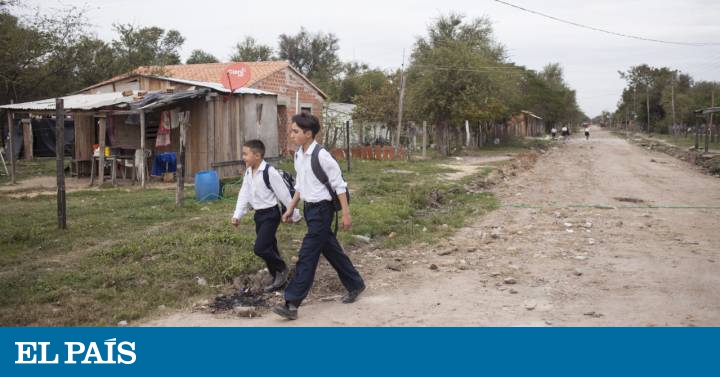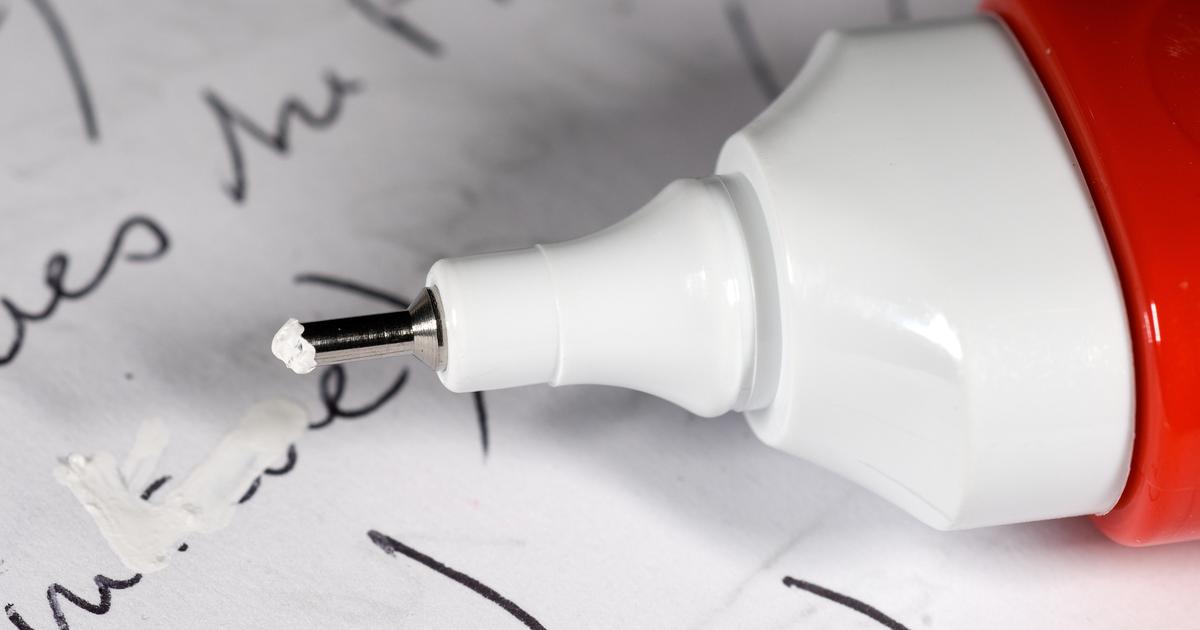The Paraguayan Ministry of Education and Science (MEC) announced at the end of last January that 525,459 students between 6 and 14 years old would have at their disposal from the first day of material classes "for educational innovation". The surprise began when the teachers read the new booklets of the Mathematics program for Paraguay (Mapara) and denounced to the press errors in the texts. Students could read "clace", "calacular", "problamas" and number without tilde, in addition to lack of concordance between subjects and verbs, to mention just a few examples. The cost of the books was 2,135 million Guarani, equivalent to about 330,000 dollars, which were contributed by the European Union, according to the MEC.
The Paraguayan Minister of Education, Eduardo Petta, first blamed his subordinates, then the printing presses and then minimized the problem before the cameras while hinting ironic that the students would solve the mistakes. He also suggested that, as a donor, the European Union also had responsibility for the result.
A few hours after those statements, while memes with the photo of the minister and messages with misspellings flooded the networks, the embassy of the European Union in Paraguay issued a statement regretting that a part of the funds transferred directly to the Paraguayan Ministry of Finance for the budget of the MEC "they may have been used in the printing of pedagogical books that do not meet the necessary quality standards".
"We urge the competent authorities to reinforce quality controls in educational materials to achieve the expected indicators. Without achieving results, the European Union will not be able to make disbursements in future programs," wrote the delegation commanded by Ambassador Paolo Berizzi. The statement was disseminated on the embassy website.
Minister Petta responded to the statement on Twitter, again suggesting that it was the fault of the European Union and not of his institution. He even indicated with name, surname and nationality an alleged European cooperation worker who would have participated in the project. He immediately removed the publication from the network, but did not apologize. He later insisted on blaming the EU on a national radio. Finally, when teachers and student unions protested in front of his ministry demanding his dismissal and an official explained that he had already reported the mistakes in October last year, Petta agreed to cease two of his directors.
In August of this year, the EU will conclude a donation plan in Paraguay in which it invested 180 million dollars since 2014. Of that total, 91 million dollars went to two programs to support the education system. One of them - with a cost of 50 million dollars delivered to the Government in three installments - is where the money came from to print the defective school booklets, explains the head of EU cooperation in Paraguay, Matteo Sartori. "Education is a medium to long-term investment. We continue and we will continue despite the small mistakes in one book or another," says Sartori after participating in a meeting with Minister Petta and the representative of the European Union in Asunción .
An exemplary program
The Mathematics program for Paraguay (Mapara) had all the elements to become an emblem of the improvement of the educational system. Of Japanese origin, it proposes a participatory, critical and entertaining teaching of mathematics against the traditional dictation and copy of the blackboard that is still law in the classrooms of this South American country. Mapara has been a decade of development between parents and teachers in rural municipalities of Paraguay, supported by volunteers from Japanese cooperation (JICA).
After years of pressure from the educational community, the positive and inexpensive results of Mapara, first in four districts and then in five entire departments (of the 17 that make up the country), managed to convince the Paraguayan Ministry of Education to extend the program in the nation. Public school students who learned with this strategy have performances in mathematics "far superior" to the private schools of the Asunción elites, said Deputy Minister of Education Robert Cano.
Mapara is a hopeful program for teachers who have already put it into practice in a country where inequality allows very little hope for the majority of the population and where learning and teaching mathematics are among the worst classified in Latin America, according to the PISA Report of the Organization for Economic Cooperation and Development (OECD).
"The Paraguayan educational system does not compensate for existing social inequalities, but rather deepens them" due to the lack of public investment, the OECD highlights in its latest analysis. This report classifies Paraguay as the worst in mathematics in Latin America and fourth in the world, only surpassing Cambodia, Senegal and Zambia.
"The precariousness of educational institutions is due to the country's limited budget for investment in material resources," adds the international organization. Paraguay is among the countries in the world with the lowest percentage of its GDP invested in the state education sector (currently about 3.4%). The country also draws on the deficiencies inherited from the dictatorship of the military Alfredo Stroessner (1954-1989), who never spent more than 2% of GDP on public education. Unesco recommends at least 7% in education for developing countries such as Paraguay.
Wasted resources
"These errors in the texts are a waste of resources from international cooperation, the level of mediocrity in the revision of these texts is something that attracts attention. If something like this happens I think it was appropriate to accept the error and see how to solve it, but the MEC did not respond as one would expect the situation and contributed to the problem becoming more serious, "says David Riveros García, director of the NGO reAcción Paraguay, which oversees the use of public funds for education and has denounced dozens of infrastructure deficiencies. , irregularities and embezzlement in recent years.
"I think we have an authoritarian educational system that does not encourage critical thinking, the ideology of the dictatorship will continue to be present as long as those people trained in dictatorship continue deciding our pedagogical system," said Riveros.
Classes have started this Tuesday in Paraguay. The booklets only arrived at some schools because the minister, ten days after the start of the controversy, reappeared at a press conference to announce the stoppage of the program while correcting the errors. He also apologized for his behavior during the crisis. "I was not in good health and did not give the most appropriate answer," he said.
The Paraguayan president, Mario Abdo, considered the crisis settled. On Tuesday he presented a new investment in education with Minister Petta: 5,000 desks that were drawn and displayed on the esplanade of the Government Palace.








